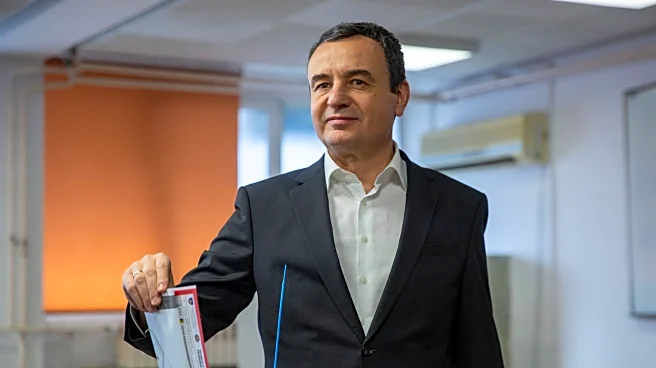What's Happening?
A patient with Parkinson's disease played the clarinet during a brain surgery procedure, allowing surgeons to assess the immediate effects of their treatment. This unique approach was employed to ensure
the surgical intervention was having the desired impact on the patient's motor functions. By playing the clarinet, the patient provided real-time feedback to the medical team, enabling them to make precise adjustments during the operation. This method highlights an innovative technique in neurosurgery, where patient interaction can guide surgical decisions.
Why It's Important?
This event underscores a significant advancement in the field of neurosurgery, particularly in treating neurological disorders like Parkinson's disease. By involving the patient actively during surgery, doctors can achieve more accurate outcomes, potentially improving the quality of life for individuals with such conditions. This approach may pave the way for similar techniques in other surgeries, where real-time feedback can enhance precision and effectiveness. The success of this procedure could influence future medical practices and training, emphasizing patient-centered care and innovative surgical methods.











